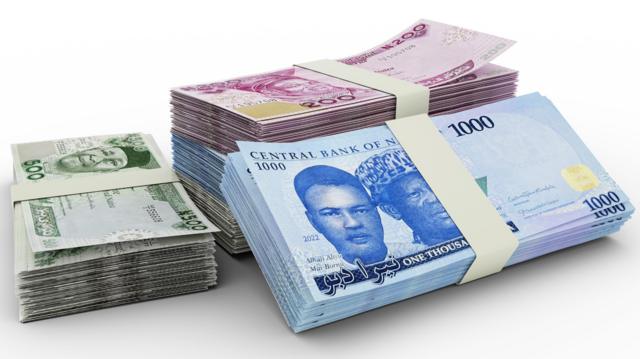Amidst Nigeria’s struggles to stabilise its exchange rate, the Naira has failed to make the list of Representative Exchange Rates for Selected Currencies for June 2024, published by the International Monetary Fund.
The list, which includes currencies from around the world, features several African countries, such as the Algerian dinar (134.492200), Botswana pula (0.072800), Mauritian rupee (46.478600), South African rand (18.697800).

This omission comes as Nigeria’s currency continues to face challenges, including a fluctuating exchange rate and a struggle to maintain stability.
Experts believe that the country’s economic woes have been exacerbated by inflation, currency fluctuations, and a decline in foreign investment.
The IMF’s Representative Exchange Rates list provides a benchmark for currencies, facilitating international trade and financial transactions.
“These representative exchange rates, which are reported to the Fund by the issuing central bank, are expressed in terms of currency units per U.S. dollar, except for those indicated by (1) which are in terms of U.S. dollars per currency unit,” the report noted.
Other currencies listed in the Fund’s report include Asia: Chinese yuan (7.246300), Japanese yen (157.150000), Indian, rupee (83.065900), Korean won (1,381.600000), Kuwaiti dinar (0.306500), Omani rial (0.384500), Philippine peso (58.524000), Qatari riyal (3.640000), Saudi Arabian riyal (3.750000), Singapore dollar (1.351100), Thai baht (Not Available), U.A.E. dirham (3.672500), and Brunei dollar (1.351100).
Europe: Euro (1.084200), U.K. pound (1.271450), Czech koruna (22.798000), Danish krone (6.879700), Norwegian krone (NA), Polish zloty (3.950100), Russian ruble (89.375500), Swedish krona (10.517890), Swiss franc (0.901100)
North America: Canadian dollar (1.363500), Mexican peso (17.633800) U.S. dollar (1.000000), Trinidadian dollar (6.706100)
South America: Brazilian real (5.236700), Chilean peso (916.770000), Peruvian sol (NA), Uruguayan peso (38.786000)
Oceania: Australian dollar (0.664600), New Zealand dollar (NA)
Economic expert, Jonathan Thomas said, “The absence of the Naira from this list may further undermine investor confidence in Nigeria’s economy.
“Nigeria’s economic struggles have been ongoing, with the country facing a daunting task in stabilising its currency and revitalizing its economy.
“The IMF has been working with Nigeria to implement economic reforms, but progress has been slow. The absence of the Naira from this list serves as a stark reminder of the country’s economic challenges,” he noted.
PUNCH Online reported that Nigeria has met its IMF obligations with no outstanding payments.












